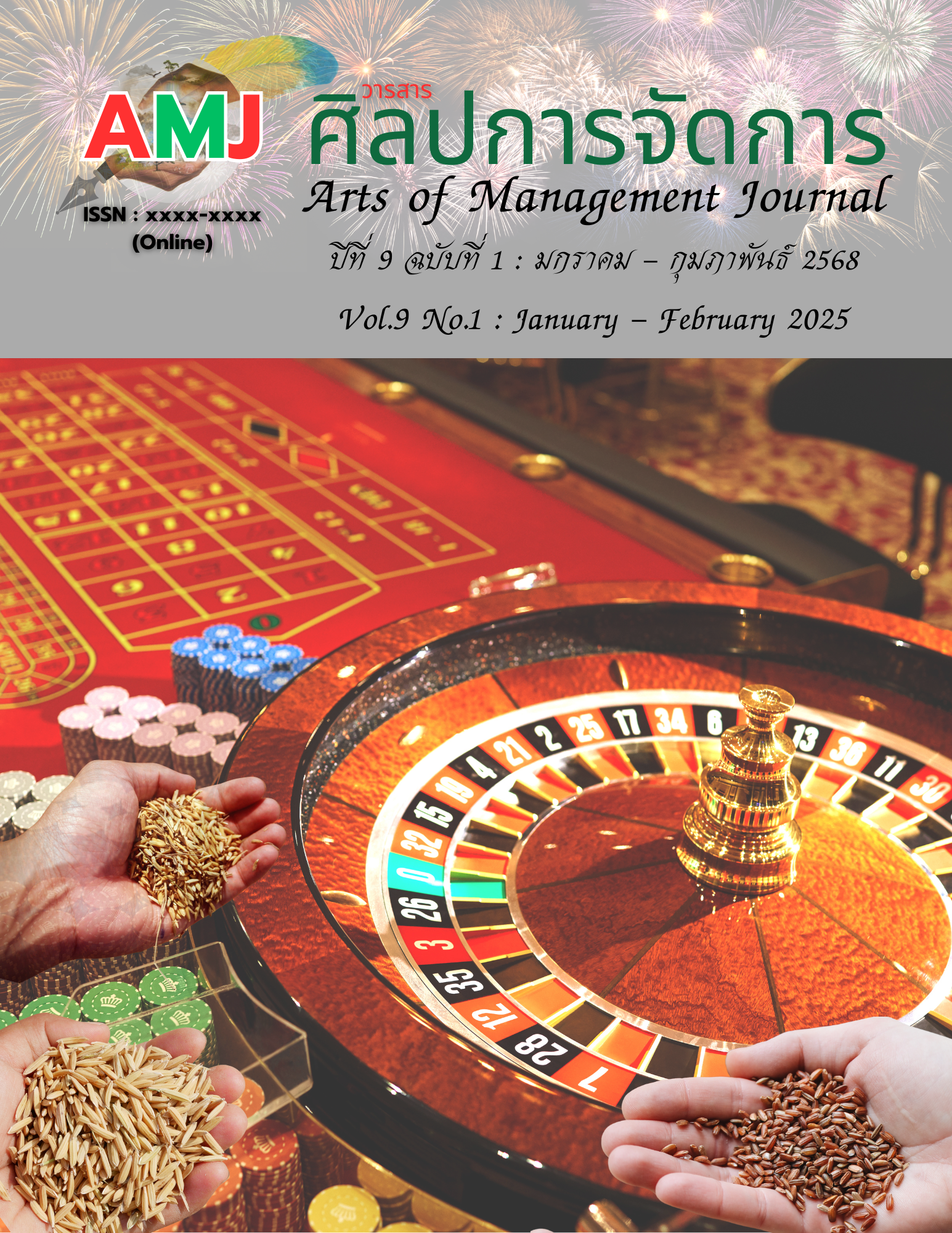Fostering Teacher Innovation Competency in Private Higher Education: The Role of Leadership and Institutional Support in Guangxi, China
Main Article Content
Abstract
This study investigates critical problems in private higher education institutions in Guangxi, China, the lack of comprehensive understanding of factors fostering teacher innovation competency, insufficient research on the specific roles of leadership and institutional support in promoting teaching innovation, and limited evidence on how these factors operate in developing regions' private higher education sector. Using a quantitative approach, data were collected from 400 teachers and administrators through a self-report questionnaire. Multiple regression analysis revealed that leadership and policy and resource support significantly and positively predicted teacher innovation competency, even after controlling for other variables. The findings highlight the importance of a holistic approach to promoting teacher innovation, emphasizing the need for strong leadership, effective policies, and adequate resources. The study contributes to understanding factors influencing teacher innovation in the context of private higher education. It provides practical implications for educational leaders and policymakers aiming to enhance innovation in teaching practices. In conclusion, this research demonstrates that policy and resource support have a slightly stronger predictive power than leadership support in fostering teacher innovation competency. The study reveals that moderate leadership and institutional support levels can maintain above-average teacher innovation competency. This suggests that strategic allocation of resources and supportive leadership practices are crucial for enhancing teaching innovation in private higher education institutions. These findings provide valuable insights for developing targeted interventions to promote teacher innovation in similar educational contexts.
Article Details

This work is licensed under a Creative Commons Attribution-NonCommercial-NoDerivatives 4.0 International License.
Views and opinions appearing in articles in the Journal of Arts of Management It is the responsibility of the author of the article. and does not constitute the view and responsibility of the editorial team I agree that the article is copyright of the Arts and Management Journal.
References
Barney, J. (1991). Firm resources and sustained competitive advantage. Journal of management, 17(1), 99-120.
BERA. (2018). Ethical guidelines for educational research (4th ed.). British Educational Research Association. https://www.bera.ac.uk/researchers-resources/publications/ethical-guidelines-for-educational-research-2018
Brown, T. A. (2015). Confirmatory factor analysis for applied research. Guilford publications.
Christian-Brandt, A. S., Santacrose, D. E., & Barnett, M. L. (2020). In the trauma-informed care trenches: Teacher compassion satisfaction, secondary traumatic stress, burnout, and intent to leave education within underserved elementary schools. Child abuse & neglect, 110, 104437.
Creswell, J. W., & Creswell, J. D. (2017). Research design: qualitative, quantitative, and mixed methods approaches. Sage publications.
Dillman, D. A., Smyth, J. D., & Christian, L. M. (2014). Internet, phone, mail, and mixed-mode surveys: The tailored design method: John Wiley & Sons.
Gbobaniyi, O., Srivastava, S., Oyetunji, A. K., Amaechi, C. V., Beddu, S. B., & Ankita, B. (2023). The mediating effect of perceived institutional support on inclusive leadership and academic loyalty in higher education. Sustainability, 15(17), 13195.
González, M. R. (2020). A qualitative study on women in top leadership positions in higher education institutions in Mexico: Gonzaga University.
Hair, J., Hollingsworth, C. L., Randolph, A. B., & Chong, A. Y. L. (2017). An updated and expanded assessment of PLS-SEM in information systems research. Industrial Management & Data Systems, 117(3), 442-458.
Hargreaves, A., & Fullan, M. (2015). Professional capital: Transforming teaching in every school. Teachers College Press.
Krejcie, R.V., & Morgan, D.W. (1970). Determining sample size for research activities. Educational and Psychological Measurement, 30, 607-610. https://doi.org/10.1177/001316447003000308
Leithwood, K., & Sun, J. (2012). The nature and effects of transformational school leadership: A meta-analytic review of unpublished research. Educational administration quarterly, 48(3), 387-423.
Li, Q., & Liu, M. (2023). The effect of family supportive supervisor behavior on teachers’ innovative behavior and thriving at work: A moderated mediation model. Frontiers in Psychology, 14, 1129486.
Lin, Q. (2022). The relationship between distributed leadership and teacher innovativeness: Mediating roles of teacher autonomy and professional collaboration. Frontiers in Psychology, 13, 948152.
McKeown, M. (2008). The truth about innovation. Pearson/Prentice Hall.
Paletta, A., & Alimehmeti, G. (2023). Does the professional learning community intermediate the effects of principal's leadership on teaching innovation?. Management in Education. https://doi.org/10.1177/08920206231200099
Park, J.-H. (2012). The effects of principal’s leadership style on support for innovation: Evidence from Korean vocational high school change. Asia Pacific Education Review, 13, 89-102.
Rogers, E. (2003). Diffusion of innovations (5th ed.). Free Press.
Sidhu, R., & Gage, W. H. (2021). Enhancing the odds of adopting e-learning or community-focused experiential learning as a teaching practice amongst university faculty. Heliyon, 7(4).
Smith, J., Johnson, K., & Lee, P. (2021). Organizational culture and teacher innovation: Exploring the dynamics. Educational Research and Reviews., 29(2), 233-250.
Smith, M., & O’Day, J. (1991). Systematic school reform. In S. Fuhrman and B. Malen (Eds.), The Politics of Curriculum and Testing (pp. 233-268). Philadelphia: Falmer Press.
Taber, K. S. (2018). The use of Cronbach’s alpha when developing and reporting research instruments in science education. Research in science education, 48, 1273-1296.
Wang, Y., & Hallinger, P. (2019). Mapping the terrain of leadership and teacher innovation: A conceptual overview. Educational Management Administration & Leadership, 46(3), 357-374.
Xu, Y., & Liu, J. (2023). Exploring the influence of professional learning communities on teachers' innovation competency: A case study of Guangxi private higher education institutions. International Journal of Educational Development, 82.
Zhang, X., & Bartol, K. M. (2010). Linking empowering leadership and employee creativity: The influence of psychological empowerment, intrinsic motivation, and creative process engagement. Academy of management Journal, 53(1), 107-128.
Zhu, C., & Engels, N. (2014). Organizational culture and instructional innovations in higher education: Perceptions and reactions of teachers and students. Educational management administration & leadership, 42(1), 136-158.
Zhu, C., Wang, D., Cai, Y., & Engels, N. (2013). What core competencies are related to teachers' innovative teaching? Asia-Pacific Journal of Teacher Education, 41(1), 9-27.


